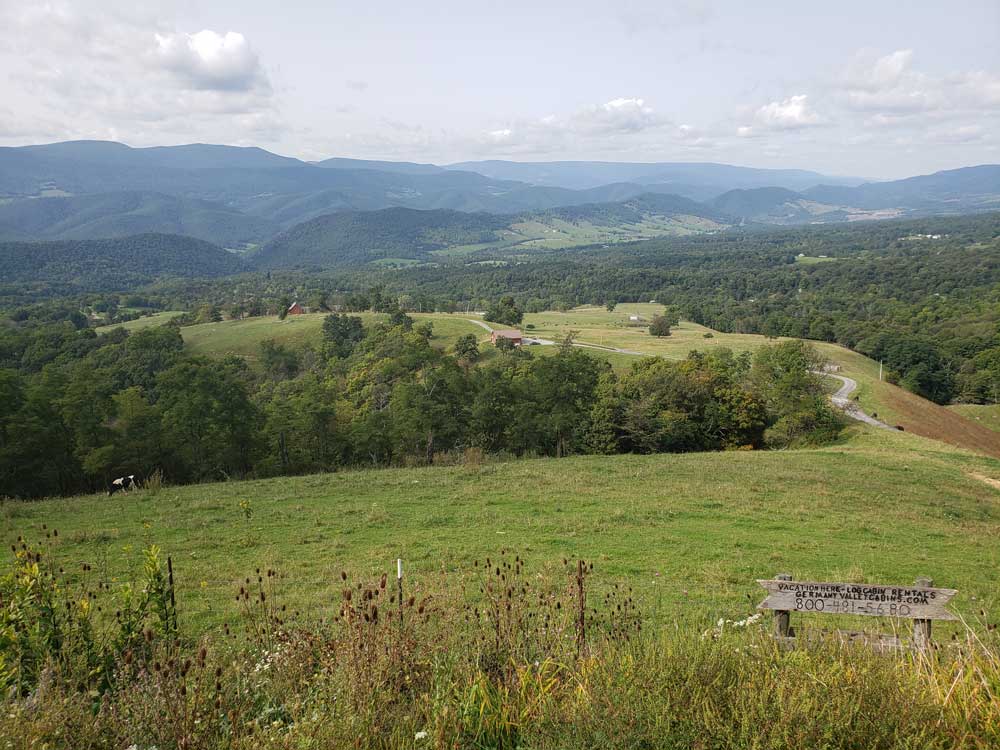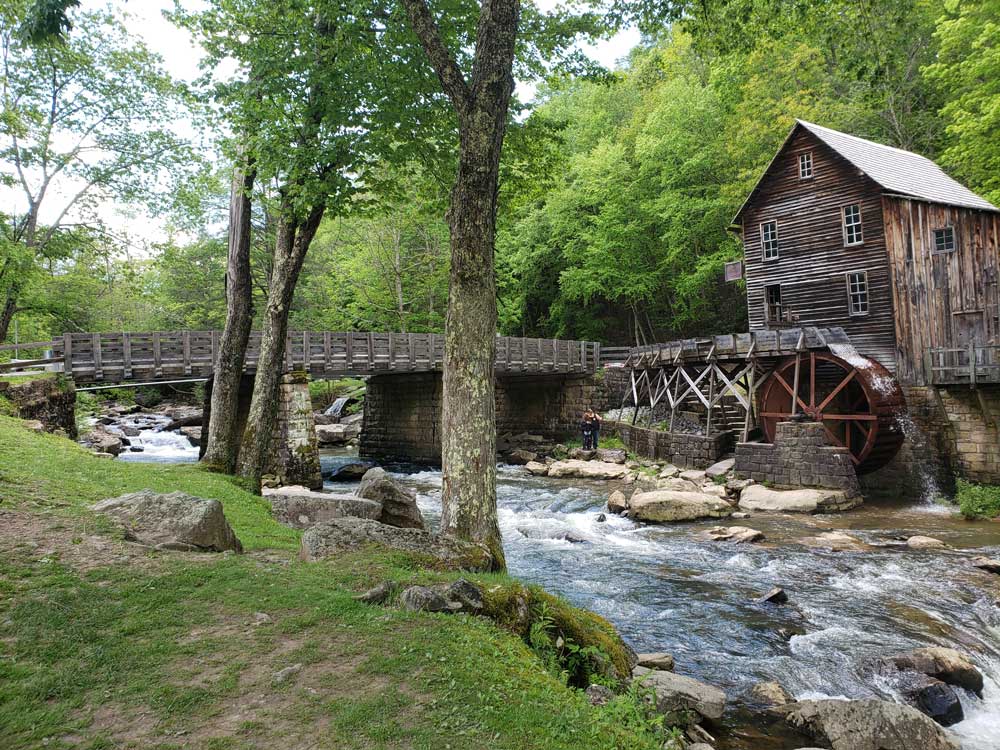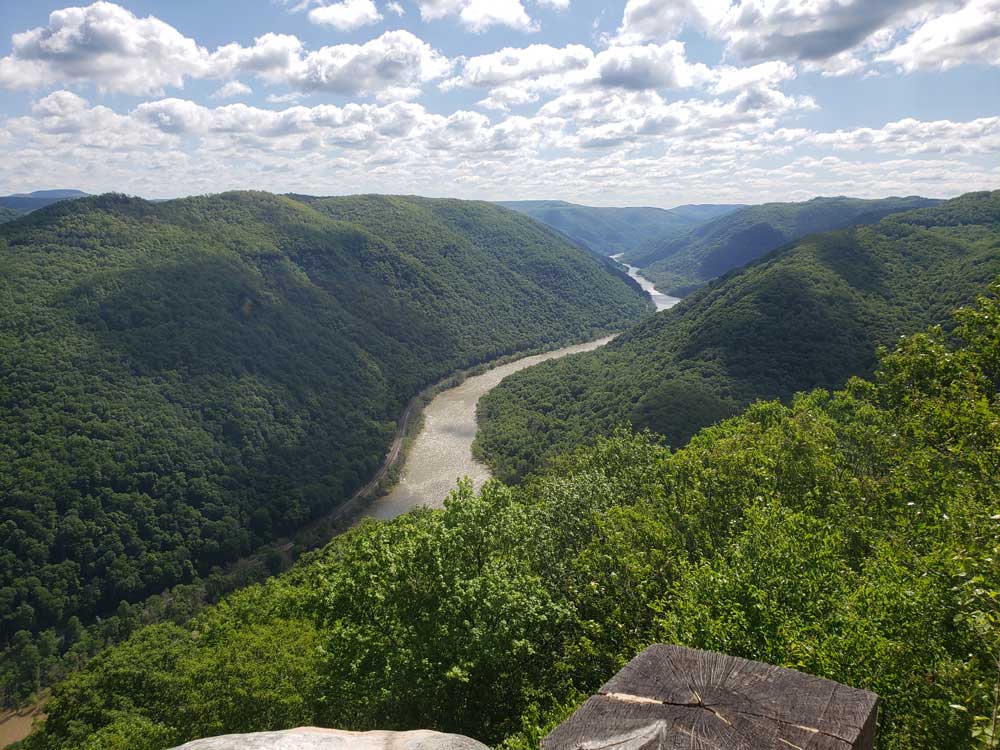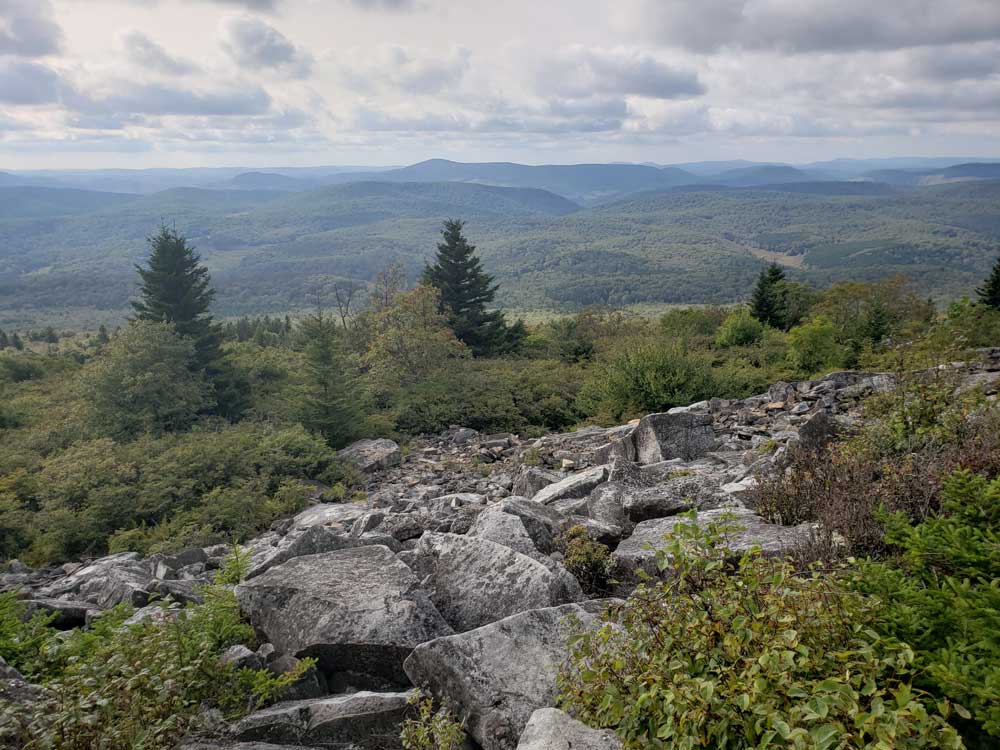West Virginia Travel Guide
State in the Appalachian, Mid-Atlantic and Southeastern regions of the United States where the capital and largest city is Charleston and the state is noted for its mountains and rolling hills, its historically significant logging and coal mining industries and also known for a wide range of outdoor recreational opportunities, including skiing, whitewater rafting, fishing, hiking, backpacking, mountain biking, rock climbing, and hunting
West Virginia Map
Places to See in West Virginia
German Valley
Scenic upland valley high in the Allegheny Mountains of eastern West Virginia originally settled by German (including Pennsylvania Dutch) farmers in the mid-18th Century
Glades Creek Grist Mill
Fully functional grist mill replica of the original Cooper's Mill, which once stood on the grounds
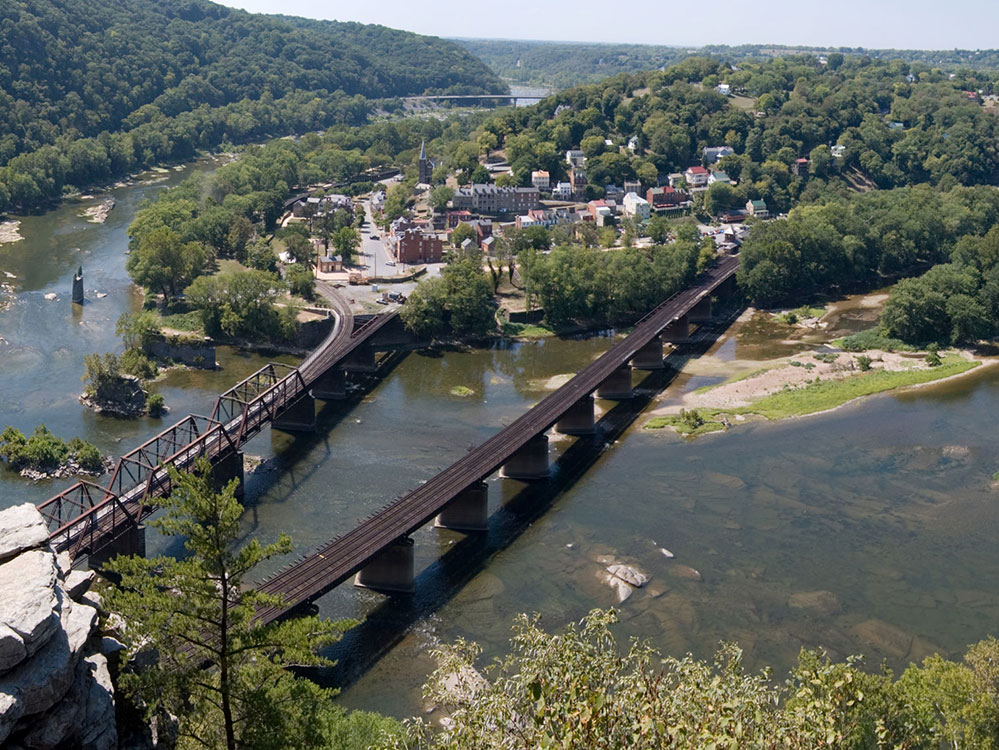
Mark Fickett, CC BY 3.0, via Wikimedia Commons; Image Size Adjusted
Harpers Ferry
Fully functional grist mill replica of the original Cooper's Mill, which once stood on the grounds
New River Gorge National Park
The newest National Park, the 70,000-acre park offering hiking, rock climbing, rafting on a whitewater river & other activities and an Iconic steel arch bridge, one of the longest & highest in the world, spanning the river
Spruce Knob
The state's highest peak, this 4,863-ft mountain features an interpretive trail & observation tower
West Virginia is a state in the Appalachian, Mid-Atlantic and Southeastern regions of the United States. The capital and largest city is Charleston.
West Virginia became a state after the Wheeling Conventions of 1861, at the start of the American Civil War. Delegates from northwestern Virginia's Unionist counties decided to break away from Virginia, which also included secessionist counties in the new state. West Virginia was admitted to the Union on June 20, 1863, and was a key border state during the war. It was the only state to form by separating from a Confederate state, the second to separate from a state after Maine separated from Massachusetts, and one of two states (along with Nevada) admitted to the Union during the Civil War. Some of its residents held slaves, but most were yeoman farmers, and the delegates provided for the gradual abolition of slavery in the new state constitution. The state legislature abolished slavery in the state, and at the same time ratified the 13th Amendment abolishing slavery nationally on February 3, 1865.
West Virginia's Northern Panhandle extends adjacent to Pennsylvania and Ohio to form a tristate area, with Wheeling and Weirton just across the border from the Pittsburgh metropolitan area. Huntington in the southwest is close to Ohio and Kentucky, while Martinsburg and Harpers Ferry in the Eastern Panhandle region are considered part of the Washington metropolitan area, between Maryland and Virginia. West Virginia is often included in several U.S. geographical regions, including the Mid-Atlantic, the Upland South, and the Southeastern United States. It is the only state entirely within the area served by the Appalachian Regional Commission; the area is commonly defined as "Appalachia".
The state is noted for its mountains and rolling hills, its historically significant logging and coal mining industries, and its political and labor history. It is also known for a wide range of outdoor recreational opportunities, including skiing, whitewater rafting, fishing, hiking, backpacking, mountain biking, rock climbing, and hunting.
West Virginia is located entirely within the Appalachian Region, and the state is almost entirely mountainous, giving reason to the nickname The Mountain State and the motto Montani Semper Liberi ("Mountaineers are always free"). The elevations and ruggedness drop near large rivers like the Ohio River or Shenandoah River. About 75% of the state is within the Cumberland Plateau and Allegheny Plateau regions. Though the relief is not high, the plateau region is extremely rugged in most areas. The average elevation of West Virginia is approximately 1,500 feet (460 m) above sea level, which is the highest of any U.S. state east of the Mississippi River.
On the eastern state line with Virginia, high peaks in the Monongahela National Forest region give rise to an island of colder climate and ecosystems similar to those of northern New England and eastern Canada. The highest point in the state is atop Spruce Knob, at 4,863 feet (1,482 m), and is covered in a boreal forest of dense spruce trees at altitudes above 4,000 feet (1,200 m). Spruce Knob lies within the Monongahela National Forest and is a part of the Spruce Knob-Seneca Rocks National Recreation Area. A total of six wilderness areas can also be found within the forest. Outside the forest to the south, the New River Gorge is a canyon 1,000 feet (300 m) deep, carved by the New River. The National Park Service manages a portion of the gorge and river that has been designated as the New River Gorge National Park and Preserve.
Other areas under protection and management include:
- Appalachian National Scenic Trail
- Bluestone National Scenic River
- Canaan Valley National Wildlife Refuge
- Chesapeake and Ohio Canal National Historical Park
- Gauley River National Recreation Area
- George Washington National Forest
- Harpers Ferry National Historical Park
- Ohio River Islands National Wildlife Refuge
Many tourists, especially in the eastern mountains, are drawn to the region's notable opportunities for outdoor recreation. Canaan Valley is popular for winter sports, Seneca Rocks is one of the premier rock climbing destinations in the eastern U.S., the New River Gorge/Fayetteville area draws rock climbers as well as whitewater rafting enthusiasts, and the Monongahela National Forest is popular with hikers, backpackers, hunters, and anglers.
In addition to such outdoor recreation opportunities, the state offers a number of historic and cultural attractions. Harpers Ferry National Historical Park is a historic town situated at the confluence of the Shenandoah and Potomac rivers. Harpers Ferry was the site of John Brown's 1859 raid on the U.S. Armory and Arsenal. Located at the approximate midpoint of the Appalachian Trail, Harpers Ferry is the base of the Appalachian Trail Conservancy.
The Greenbrier hotel and resort, originally built in 1778, has long been considered a premier hotel, frequented by numerous world leaders and U.S. presidents over the years.
This article uses material from the Wikipedia article "West Virginia", which is released under the Creative Commons Attribution-Share-Alike License 3.0
